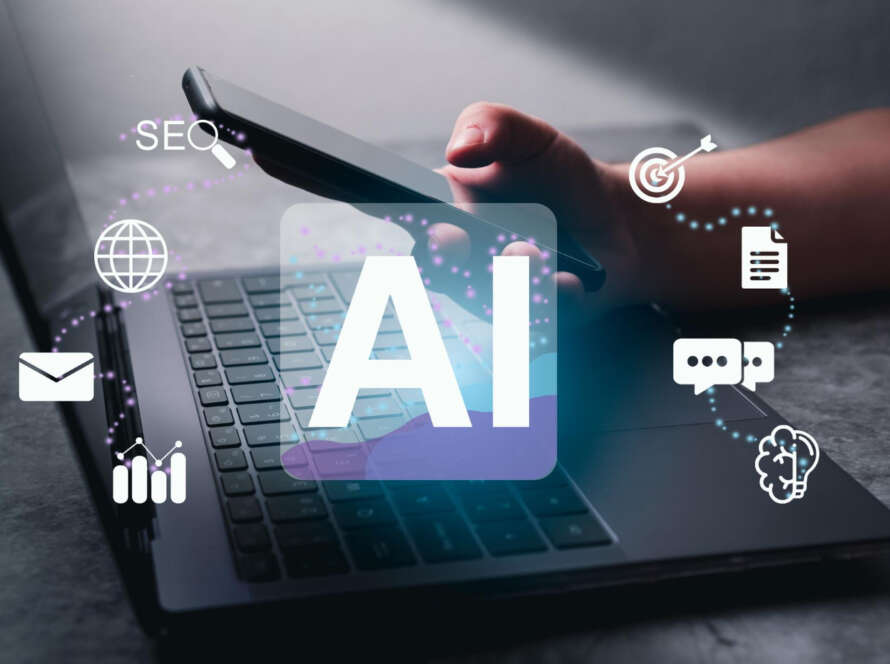Artificial Intelligence is changing the way we interact with customers, making experiences more personalised and efficient. AI innovations allow us to understand customer needs better, respond faster, and provide tailored solutions. This transformation not only improves satisfaction but also builds stronger relationships with our audience.
One significant impact of AI is in understanding customer behaviour. By analysing data from various interactions, AI can predict what customers want before they even ask. This means we can offer personalised recommendations and solutions, turning every interaction into a positive experience.
Another key advantage is the ability to provide support around the clock. AI-powered chatbots and virtual assistants can handle customer inquiries any time of the day, ensuring no question goes unanswered. This constant availability enhances the customer experience and boosts their trust in our brand.
In this article, we will delve into how AI is enhancing customer experience. From key technologies that transform interactions to the benefits of AI-driven strategies, and best practices for successful implementation. Understanding these aspects will help us leverage AI to connect with our customers in more meaningful ways.
Understanding AI Innovations in Customer Experience
AI innovations are revolutionising how we manage customer experiences. By leveraging AI, we can analyse massive amounts of data to gain insights into what our customers want and need. This technology helps us personalise every interaction, making customers feel valued and understood.
Machine learning, a subset of AI, allows us to predict customer behaviour based on past interactions. This means we can anticipate their needs and offer solutions before they even realise they need them. For example, AI can recommend products that a customer is likely to buy based on their previous purchases and browsing history.
Natural language processing (NLP) is another AI innovation that transforms customer experience. NLP enables machines to understand and respond to human language in a natural way. This means we can use chatbots and virtual assistants to answer customer queries instantly, providing support 24/7. These AI-powered tools ensure that customers receive timely and accurate responses, enhancing their experience and satisfaction.
Key AI Technologies Transforming Customer Interactions
Several key AI technologies are changing how we interact with our customers. These technologies make our customer service more efficient and personalised. Here are some of the main ones:
1. Chatbots: AI-powered chatbots handle customer queries round the clock. They provide instant responses, helping customers find the information they need quickly. Chatbots can handle multiple inquiries at once, ensuring prompt service without waiting times.
2. Virtual Assistants: Like chatbots, virtual assistants use AI to understand and respond to customer queries. They can perform tasks like booking appointments, answering questions, and even making personalised recommendations.
3. Recommendation Engines: These AI tools analyse customer data to suggest products or services that match their preferences. This personalisation makes shopping more convenient and enjoyable for customers, increasing their loyalty and satisfaction.
4. Sentiment Analysis: This technology analyses customer feedback to understand their emotions and opinions. By gauging sentiment, we can identify areas of improvement and address issues promptly, ensuring a positive customer experience.
5. Predictive Analytics: AI uses predictive analytics to foresee customer needs and behaviours. This allows us to proactively engage with customers, offering them relevant solutions and preventing potential issues.
These AI technologies are essential for modernising and enhancing customer interactions. They help us provide efficient, personalised service, ensuring our customers have a positive and engaging experience.
Benefits of AI-Driven Customer Experience Strategies
Implementing AI in our customer experience strategies provides numerous benefits. These advantages enhance the overall experience, making our interactions more effective and rewarding for customers. Here are some key benefits:
1. Personalised Customer Experiences: AI analyses vast amounts of data to provide insights into individual customer preferences. This enables us to tailor our interactions, making customers feel valued and understood. Personalisation increases engagement and strengthens customer loyalty.
2. Increased Efficiency: AI automates repetitive tasks, freeing up our time to focus on more strategic activities. This efficiency means faster response times and improved service quality. For instance, chatbots handle routine inquiries, allowing human agents to concentrate on complex issues.
3. Real-Time Support: With AI-powered tools like chatbots and virtual assistants, we can offer support 24/7. Customers receive instant help, reducing wait times and improving satisfaction. Real-time support ensures that customer issues are addressed promptly and effectively, enhancing their experience.
4. Data-Driven Decision Making: AI provides valuable insights through data analysis, helping us make informed decisions. By understanding customer behaviour and preferences, we can create strategies that are more likely to succeed. This approach leads to better outcomes and a higher return on investment.
5. Proactive Problem Solving: Predictive analytics allows us to anticipate customer issues and address them before they escalate. This proactive approach increases satisfaction and prevents potential problems, ensuring a smooth customer journey.
Best Practices for Implementing AI to Enhance Customer Experience
Successfully integrating AI into our customer experience strategies requires careful planning and implementation. Here are some best practices to follow:
1. Start with Clear Goals: Identify what you want to achieve with AI. Whether it’s improving response times, personalising interactions, or gaining insights into customer behaviour, having clear goals ensures a focused approach.
2. Choose the Right Tools: Select AI tools that align with your objectives. Consider factors such as ease of use, integration capabilities, and the level of support provided. The right tools will enhance your ability to deliver a superior customer experience.
3. Train Your Team: Ensure that your team is well-versed in using AI tools. Provide training sessions and resources to help them understand the technology and how to apply it effectively. A well-trained team can leverage AI to its full potential.
4. Monitor and Adjust: Regularly review the performance of your AI-driven strategies. Use analytics to assess their effectiveness and make necessary adjustments. Continuous monitoring and refinement ensure that your AI solutions remain relevant and impactful.
5. Maintain Human Touch: While AI can handle many tasks, human interaction is still essential. Ensure that your team is available to address complex issues that require empathy and understanding. Balancing AI with the human touch ensures a comprehensive customer experience.
Conclusion
Leveraging AI innovations can significantly enhance customer experience. By incorporating AI-powered tools and strategies, we can provide personalised, efficient, and proactive service. These technologies empower us to understand our customers better, respond to their needs more quickly, and make data-driven decisions that improve overall satisfaction.
To successfully implement AI, we should start with clear goals, choose the right tools, train our team, and continuously monitor our strategies. Balancing AI capabilities with human interaction ensures that we offer a comprehensive and effective customer experience.
If you’re ready to take your customer experience to the next level, contact Not Just Marketing today. Let’s explore how our innovative AI integration and approach can help you connect with your customers in more meaningful ways.



